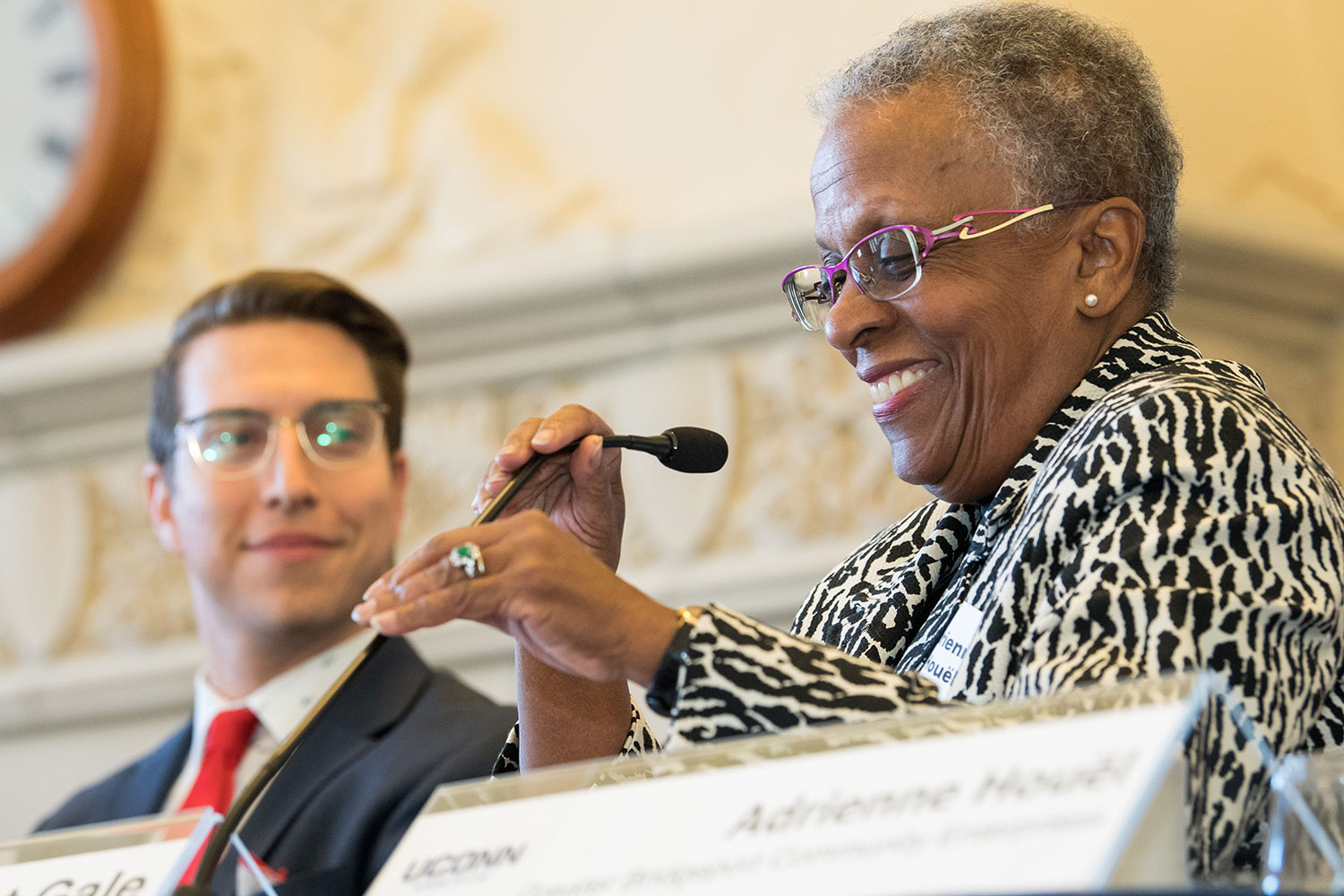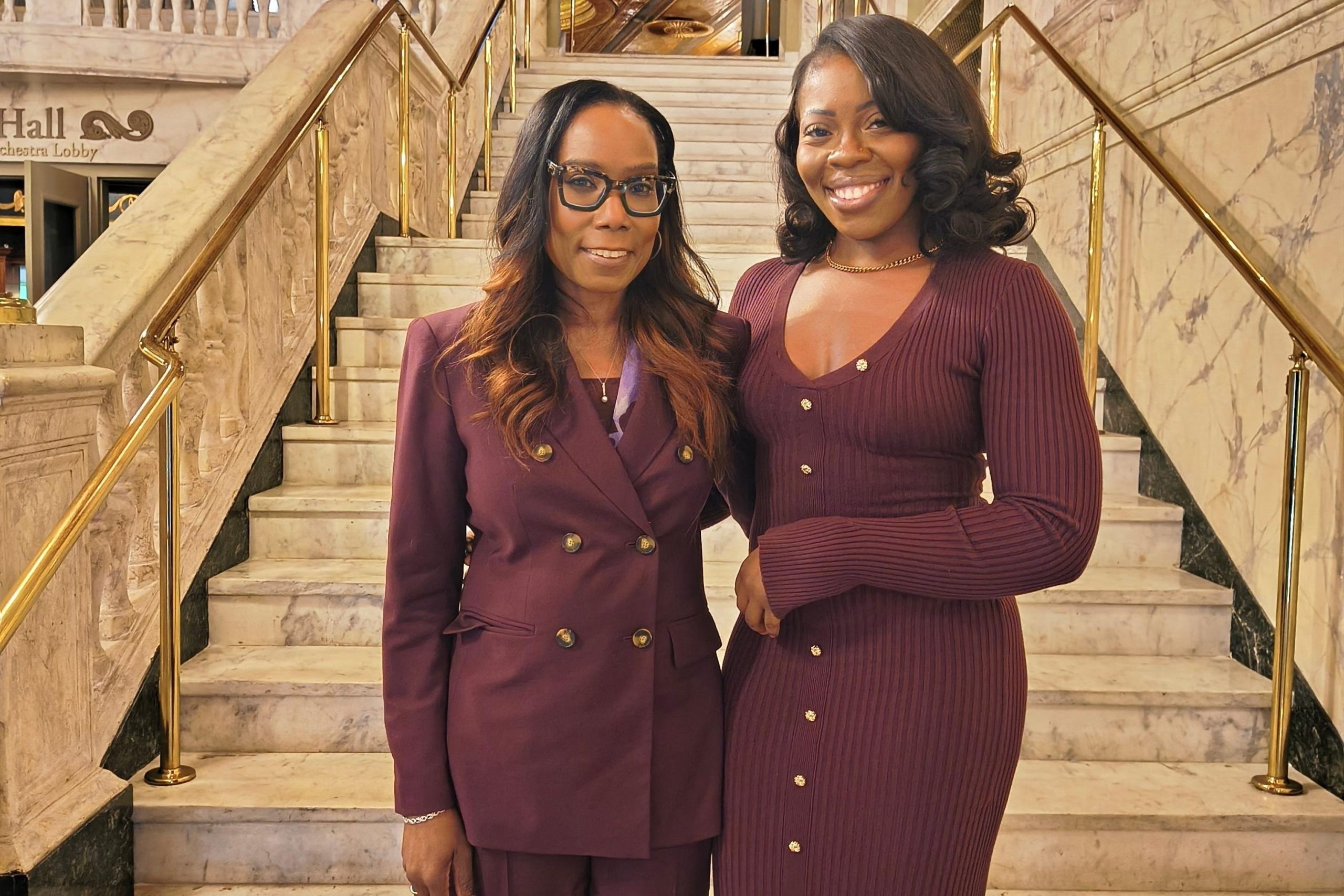A sold-out crowd of academics, environmentalists, lawyers, planners, architects, and students assembled March 3, 2017, for the 22nd Gallivan Conference, “Municipal Climate Policy: Local Solutions for a Global Problem at UConn School of Law.
The conference, convened by Professor Sara Bronin, the Thomas F. Gallivan Chair in Real Property Law and cosponsored by the law school’s Center for Energy & Environmental Law, explored how cities are addressing what is arguably the most pressing issue of our time: climate change.
Dean Timothy Fisher welcomed the crowd and highlighted the law school’s leadership in training the next generation of lawyers to tackle this important question through the Center for Energy & Environmental Law. Afterward, two panels of experts discussed initiatives and challenges in climate action planning in Portland (Oregon), Los Angeles, Burlington, Des Moines, and Bridgeport.
At lunch (by farm-to-table caterer The Kitchen at Billings Forge), keynote speaker Nilda Mesa, director of Urban Sustainability and Equity Planning at Columbia University’s Earth Institute and former director of the New York City Mayor’s Office of Sustainability, described the design and implementation of New York City’s path-breaking long-term sustainability plan, One NYC.
“The caliber of discourse at this conference proves once again that UConn Law School is one of the most dynamic places in the Northeast to learn about environmental law and policy,” said Professor Bronin. Professor Joseph MacDougald, executive director of the Center for Energy & Environmental Law, echoed this sentiment, saying, “All of the speakers offered specific strategies, founded in research and facts, to help local governments adapt to and mitigate the impacts of climate change.”
The climax of the conference was the interactive workshop, led by the Connecticut Chapter of the American Planning Association and the Hartford Climate Stewardship Council, which focused on Hartford’s emerging climate action planning efforts. Attendees provided feedback on six focus areas of Hartford’s draft climate action plan: energy, food, green space, transportation, waste and water. Everyone learned about the efforts of a dozen UConn Law students in providing significant research for the climate action plan through a class taught by Bronin.
“Working on the climate action plan and helping to facilitate this conference made me so proud to be a UConn Law student,” said Elizabeth Santovasi, the research assistant to the Climate Stewardship Council, who researched the Water chapter of the draft climate action plan. “At UConn, we have incredible opportunities to apply our classroom learning to actively engage in public service.”



